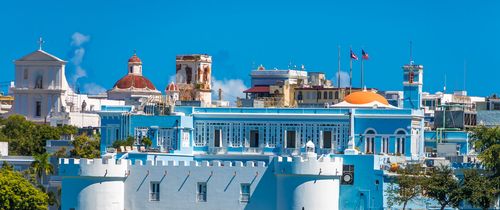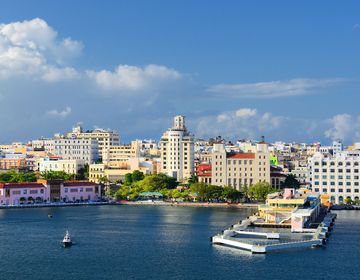
Diversity in San Juan
CIEE wants all our students to feel welcomed, supported, and empowered to succeed while studying abroad. On this page, local CIEE staff have provided details about conditions and cultural attitudes that students with specific identities might encounter at their location.
The information below is just a broad overview so if you have specific questions or concerns not covered here, please email inclusion@ciee.org. We would be glad to have local staff share their perspectives, talk with you about accommodations, connect you with resources, and/or put you in touch with a program alum who could speak about their experiences navigating a program in this location.
No matter where you choose to study abroad with CIEE, our staff—all of whom receive regular and comprehensive training in diversity, equity, and inclusion—will be on hand throughout your program to provide advice, resources, and support regarding these issues.
Body Size/Image
Body image perceptions in Puerto Rico are diverse. While mainstream media promotes slim and fit figures, there is also strong cultural appreciation for curvier body types. Beauty standards vary, but overall, there is an emphasis on personal grooming and stylish presentation in San Juan.
Disability
San Juan is becoming more disability-friendly, with efforts to improve public transportation and infrastructure accessibility. However, some areas still pose challenges, including uneven sidewalks and limited wheelchair access in historic districts. Students with disabilities should communicate their needs in advance to ensure necessary accommodations are arranged.
Gender and Gender Identity
Puerto Rico has seen progress in gender inclusivity, but gender expression can still be a sensitive issue. While San Juan is relatively open-minded, gender-nonconforming individuals may face discrimination in certain settings. Support systems and advocacy groups exist, and CIEE staff are available to provide guidance and assistance.
X Gender Marker
Puerto Rico follows U.S. federal guidelines, meaning that gender markers on documents are becoming more inclusive. However, awareness and acceptance of non-binary identities can vary. Students should be prepared for potential bureaucratic challenges if they hold an X gender marker on their passport.
Heritage Seekers
Puerto Ricans are typically welcoming to heritage seekers and eager to share their culture, history, and traditions. Many Puerto Ricans take great pride in their African, Spanish, and indigenous Taíno roots, making it a fascinating destination for students reconnecting with their heritage.
Racial and Ethnic Identity
Puerto Rico’s racial and ethnic identity is shaped by a mix of Spanish, African, and indigenous influences. While racial dynamics are complex, conversations around race and identity are common. Students of Afro-Caribbean or indigenous descent may find strong cultural connections while also encountering discussions about racial disparities.
Religion
Christianity, particularly Catholicism and Protestantism, is deeply ingrained in Puerto Rican society. Many cultural and public holidays have religious significance, and students may be invited to participate in religious traditions. However, religious diversity is respected, and participation is always optional.
Sexual Orientation
San Juan has a growing LGBTQIA+ community, and the city is relatively inclusive. However, discrimination still exists, particularly outside urban areas. While legal protections for LGBTQIA+ individuals are in place, societal attitudes can vary. CIEE staff will provide support to ensure a safe and welcoming environment for all students.
Socioeconomic Status
San Juan offers a range of experiences catering to different budgets. While there are high-end restaurants and luxury accommodations, students will also find affordable markets, local eateries, and cultural activities. Economic inequality is present, and students should be aware of their surroundings, especially in areas with higher poverty rates.
Programs in San Juan
